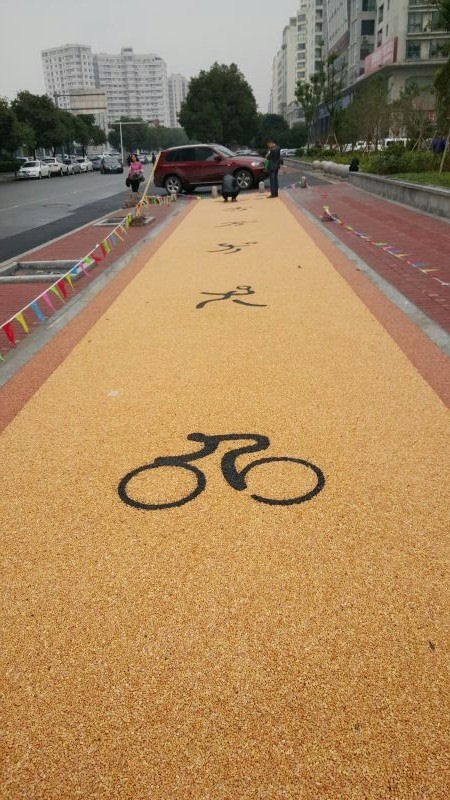|
Hangzhou, China – Elastopave®, a polyurethane binder system yielding air- and water-permeable surfaces, has been installed on Moganshan Road along the famous West Lake in Hangzhou, China where G20 Summit will be held in September. The project is a role model for the city to support G20 in implementing the 2030 agenda for sustainable development. As one of the municipal key projects for the city in 2016, the application helps Hangzhou transform itself into a “sponge city” and fulfil its goal to develop modern infrastructure in at least 20 percent of its urban areas by 2020 to prevent flooding from heavy rainfalls.
The new infrastructure based on Elastopave boosts Hangzhou’s efforts to implement solutions for sustainable development prior to the G20 Summit and to prepare for the 2022 Asian Games. Like many other cities in China, Hangzhou is facing problems with waterlogging during heavy rainfall, which causes flooding and erosion of infrastructure facilities.
“BASF’s innovative solutions such as Elastopave can be part of the Chinese government’s efforts in solving urgent local needs like reducing floods or retaining water for future use. This, in turn, will benefit residents and the whole city in the long term,” said Andy Postlethwaite, Senior Vice President, Performance Materials Asia Pacific, BASF.
Elastopave is a polyurethane binder which is mixed with gravel or stones. Compared to concrete or tar, the high proportion of large and small stone pieces creates interconnected cavities. This feature facilitates water-permeability of roads and public spaces, enabling it to absorb an estimated 4,000 liters of water per hour per square meter given suitably absorbent ground.
Elastopave has further proven to lessen the urban heat island effect by reducing pavement surface temperature by as much as 10 degrees in summer.
In China, Elastopave has already been used for roads and public spaces in many other provinces, including Fujian, Henan, Yunnan, Chongqing, and Guizhou.


